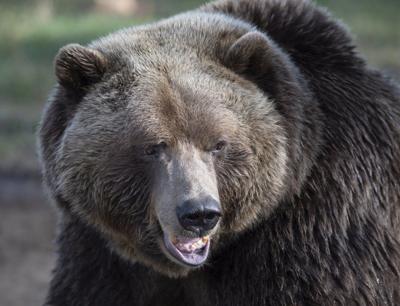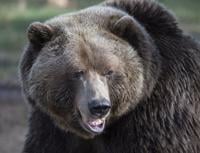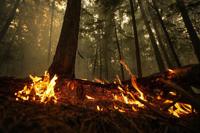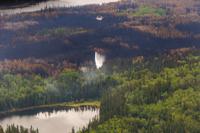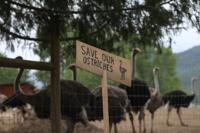In life, the grizzly bear that swam to Texada Island, B.C., in recent months had divided the community.
In death, it's expected to do the same, after being found shot on Tuesday.
Texada Island United Church Rev. Gayle Chouinard said news of the bear's death had spread through social media, and she expected debate over how the bear was dealt with to continue.Â
Some had wanted the bear relocated, while others wanted it killed or left alone.
"The people who wanted the bear relocated, I think they're really sad that it couldn't happen," Chouinard said.
"The people who want the bear gone are going to be … just glad they can go back to their lives. And there'll be a controversy, certainly for the next few weeks in the community."
British Columbia's Conservation Officer Service said in a Facebook post that the bear was found dead after Mounties told them someone reported shooting and wounding the animal on Monday.
The bear had been the focus of much public attention after it harassed livestock and damaged property on the island, having previously caused stalked humans and caused other problems in communities on the nearby Sunshine Coast, where it was repeatedly relocated.Â
The service said in its statement that the tagged grizzly found dead on Tuesday was the same animal spotted on Texada in recent weeks. It said a necropsy will be performed on the animal.Â
On May 22, the service said the bear had stalked two people walking down a Powell River trail on the mainland — they only escaped by getting in the water for 30 minutes while it circled back and forth on the shore, where it tore up one of their jackets before leaving.
Then on June 10 and 11, the same bear was reported chasing livestock on Texada, which is several kilometres from the mainland.
That month, the service said that the bear was not a candidate for relocation, having already been moved twice from Sunshine Coast communities in the past several months.Â
The service said it relocated the bear from Gibsons in the first week of September and from Sechelt at the end of the month, and on both occasions it returned to urban areas of the Sunshine Coast within weeks.
Chouinard said that the large predator being on Texada "changed the way people do things."
"We're used to just going outside and walking with our animals or dogs and not worrying about predators, you know?" she said.
"So for many people, it's changed the way that they live their life because you know they no longer feel safe walking in the woods.
"It was a beautiful bear, just beautiful. I think people feel that and see that, but there are others who say, 'Well yeah, he's a nice bear, but he just doesn't belong here."
This report by ´şÉ«Ö±˛Ąwas first published July 15, 2025.Â

